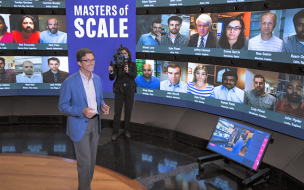Widening pools of MBA candidates are seeking more flexible study options, spurring business schools to roll out more online programs and distance learning options.
Interest in online learning has risen to a high of 18.3%, according to new data from QS, up from 16.2% last year. Interest in distance learning has also risen to 8.7%, an increase on 2013.
Comparatively, interest in full-time study has fallen for the previous three consecutive years, and this year remained roughly flat as 82% of candidates expressed it as their preference.
Similarly, interest in part-time study has risen for the second consecutive year to 28.4% of MBA candidates, while interest in the executive MBA which is often taught at a distance, has risen to nearly 15% of applicants.
This reflects an ageing MBA population, many of whom cannot afford to take significant time out of work to begin their degrees. The biggest rise in average age is seen in the United States and Canada, where the average MBA is now nearly 30 years old, a jump from 27 in 2009.
In Western Europe, the average MBA is about 28. In Eastern Europe, the figure has jumped from 27 to 29 between 2013 and 2014.
Many of the world’s leading business schools now offer online MBA programs. Most of these programs are developed with technology from companies such as FutureLearn or Coursea, but some use technology developed in-house with software companies including Microsoft.
European online MBA programs are ranked more highly than those in the United States.
European candidates are also more interested in shorter MBA programs. About 60% of MBA applicants in Western Europe and 52% of candidates in Eastern Europe seek programs which are 10-18 months long, according to QS.
In the US and Canada, the largest portion of candidates seek MBA programs which are 19-24 months in length – 58%.
RECAPTHA :
f8
29
f6
da








